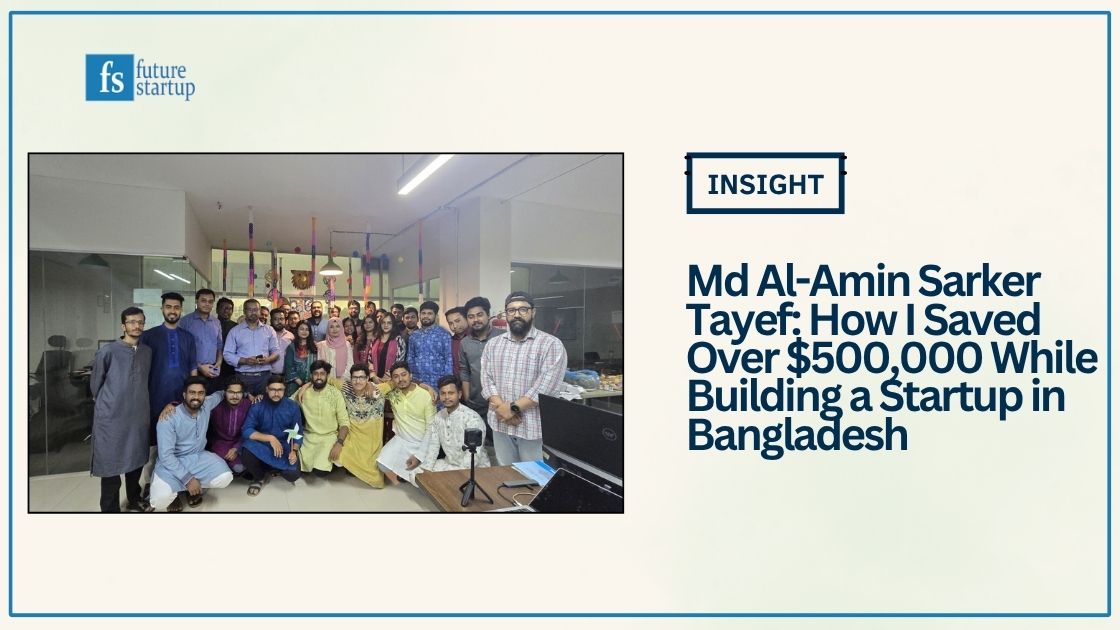
Written by Md Al-Amin Sarker Tayef
As founders, we're often driven by optimism and urgency. We want to launch fast. We want to grow fast. The startup hype—especially in today’s world—is real and relentless. But that same hype often pushes us into costly mistakes. Sometimes, those mistakes cost us our entire startups.
But a startup isn’t just about launching a product or raising capital. It’s about building a sustainable business—and there are many ways to do that. The current narrative tells us to raise money and spend fast in the name of growth. But growth doesn’t come from vanity. It comes from consistency, efficiency, and grit.
In this post, I’m sharing my journey of building Barikoi Maps, a tech-first business, as cash-efficiently as possible. Over the last 7 years, I’ve saved the company over $500,000 (BDT 6 crore)—money that helped us survive, grow, and compete against giants like Google and Mapbox. Here’s how we did it:
Barikoi is a tech middleware business—you can't build it without serious technology. Luckily, I’m a software engineer, and my co-founders are too. This gave us a massive advantage early on—we didn’t need to hire developers to get our first product out.
But beyond the tech stack, engineering skills alone won't build the business. And that's where we had to be even more resourceful.
If you’re building a tech-enabled (not tech-first) business, don’t hire engineers right away. First, figure out your operations manually. Use Google Sheets, Notion, WhatsApp—whatever works. Once you’re at the point of burnout or bottleneck, bring in a co-founder or consult a trusted tech friend or reach out to other founders (they always help)
Hiring developers without clear direction wastes time and money. Especially in Bangladesh, where experience is often measured in years—not outcomes—hiring a “5-year experienced” dev may still set you back without tangible results.
Don’t chase trendy stacks. Choose tech that’s easy to build with and has a wide talent pool. For us, PHP was the answer. It helped us go from 0 to over 2 million API calls per day without overengineering.
PHP developers are easy to find, affordable, and can get your MVP off the ground quickly. That decision alone can save you BDT 30k–100k/month.
Use every cloud credit you can get your hands on. Here’s what we’ve used:
And across 7 years, we’ve paid only $5k–$8k in actual cloud bills. Startups bleed cash on infra when free options are often enough to reach early traction.
We used DCL laptops worth BDT 20–30k each (instead of 50–60k for HP/Dell). They worked fine and many are still in use 5+ years later. If you need Apple gear, buy a used Mac Mini M1—you can find one for BDT 32–35k now.
Don’t rent a fancy office from day one. Start with a home office or a co-working space like CoStation. And when you do get an office, don’t waste money on designer furniture.
We started with a BDT 2,500 table and 6 steel chairs at BDT 800 each. We used those for a year. It took us 3 years to get an AC and 4 years before our team got their first Mac.
The more money you save by not showing off, the more you can invest in growth, runway, and product. At Barikoi, frugality became part of our culture. It’s helped us build a resilient, tech-first company in one of the most challenging environments—Bangladesh.
And yes, we’re still here—growing, shipping, and competing.
If you’re a founder just starting out, I hope this helps you rethink where you spend your money. You don’t need a million-dollar budget to build a great company—you just need discipline and clarity.
About the author: Md Al Amin Sarker Tayef is the Co-Founder of Barikoi, a Bangladesh-based mapping and location intelligence company. For the past 7 years, he has been building Barikoi to serve businesses in emerging markets like Bangladesh with affordable, privacy-focused map infrastructure. Prior to founding Barikoi, Tayef worked with AmarBike, the first motorbike taxi company in Bangladesh. A software engineer by training, he is passionate about solving local problems with scalable technology.
This article was first published in author's LinkedIn blog. Republished here with permission.
Cover photo: A snapshot of part of BariKoi team.
